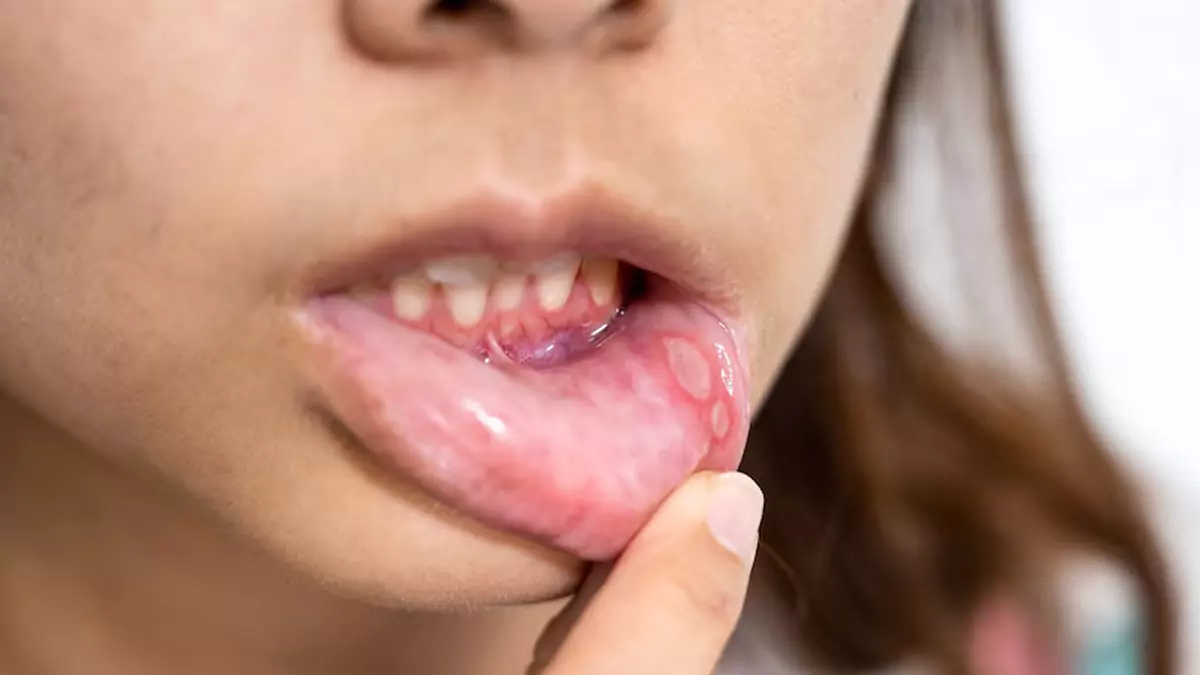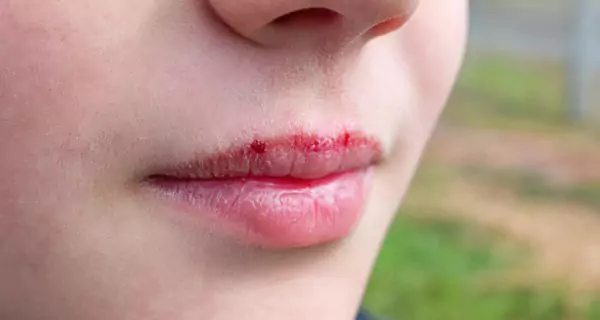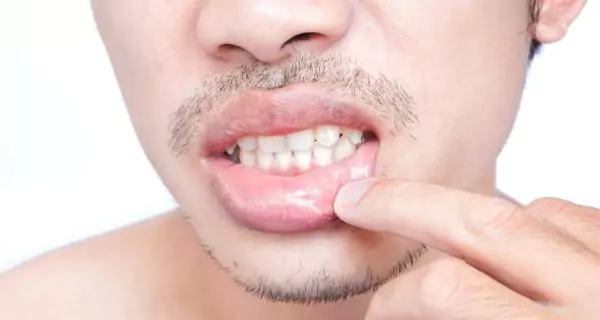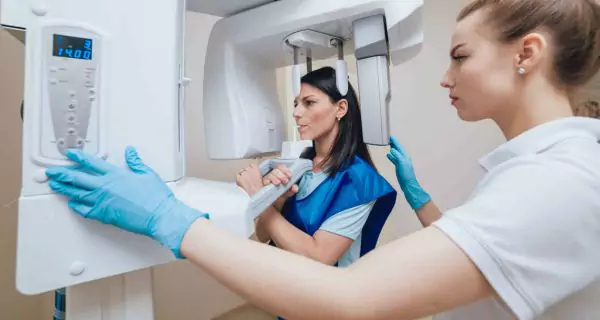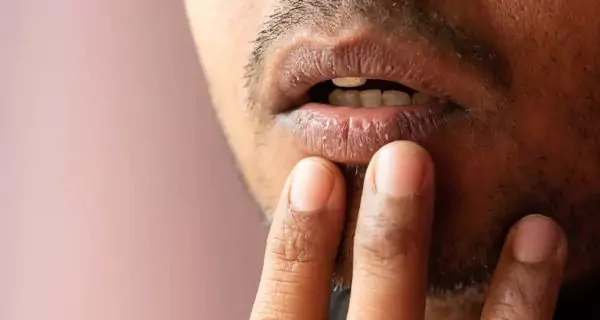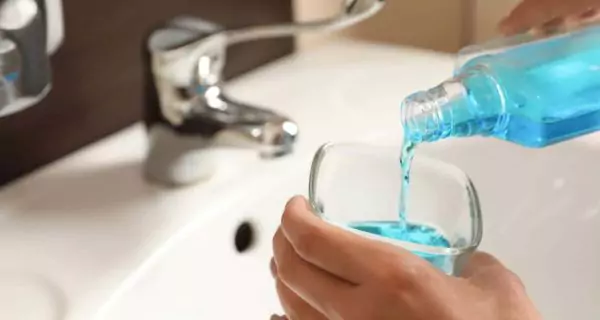Last Updated on: 19th September 2025, 12:30 pm
Because lip cancer begins at the entrance of the mouth, it directly affects how you speak, eat, and care for your teeth. Dentists are often the first to notice early warning signs, making dental check-ups essential for detecting and managing this serious condition.
Have you ever remembered to protect your lips when putting on sunscreen? Most of us don’t. But just like your skin, lips can burn with repeated sun damage leading to serious problems, including lip cancer.
Even though it’s rare (about 0.5 cases per 100,000 people per year in the U.S.), lip cancer actually makes up nearly one-third of all mouth cancers; generally, lip cancer is detected early because it’s visible, and when caught early, treatment is simpler with a better recovery.
In this article, we’ll walk you through how lip cancer connects to your oral health, what signs you shouldn’t ignore, and the simple steps you can take to protect your lips and your smile, especially on sunny days.
Why are sunny days risky for your lips?
When the sun is out, we all want to enjoy it by going to the beach, walking, biking, or just relaxing outdoors. But while you’re soaking up the sunshine, your lips are soaking up UV rays, and that can be dangerous.
The skin on your lips is very thin and sensitive, making it easier for the sun to cause damage. Over time, such damage adds up. What starts as a tiny dry spot or a small sore could turn into something more serious, like lip cancer.
Around 90% of lip cancer cases happen on the lower lip – the part that gets the most sun.
What summer habits increase your risk?
- Spending more time outside: whether you’re at the pool, hiking a trail, or just enjoying a sunny afternoon, the more time spent outdoors, the more your lips are exposed to harmful UV rays.
- Dry and cracked lips from heat: hot weather makes you sweat, and if you’re not drinking enough water, your lips will dry out fast. Cracked lips aren’t just annoying; they’re more likely to get damaged by the sun and possibly infected.
- Forgetting your lip balm or dentist visits: during the summer, people often skip their usual routines. Maybe you forget to apply lip balm with SPF or delay your dental check-up. This is exactly when your lips and mouth need the most care.
- Using sunscreen that doesn’t protect your lips: generally, facial sunscreens aren’t made for lips. If you don’t use a lip balm with SPF, you’re leaving your lips unprotected, even if the rest of your face is covered.
- Playing sports or being out in the wind: activities like running, swimming, or gardening mean more exposure to sun and wind. Wind dries out your lips even faster, especially if you’re already dehydrated or not wearing lip protection.
Summer is a time to enjoy life, but it’s also when your lips need extra love. Understanding these habits helps you spot risky situations and act early.
How is lip cancer related to oral health?
Lip cancer doesn’t just affect how your lips look; it can change how you eat, talk, smile, and even breathe. Since the lips are part of your mouth, this type of cancer directly impacts oral health and daily comfort.
Because it’s in such a visible area, dentists are often the first to notice something is wrong. Regular dental visits are key, not just for your teeth, but for your overall health.
What are the early signs of lip cancer?
Lip cancer often starts quietly. What seems like a sunburn or dry patch could be an early warning sign. Some signs to watch for:
- a sore or scab that doesn’t heal after two weeks
- a red, white, or dark spot on your lip
- a lump or thickened area
- tingling, numbness, or pain
- cracks or dryness that don’t go away
These signs may not hurt at first, which is why they’re easy to ignore. Early detection changes everything.When caught early, lip cancer has a 5-year survival rate of over 90% (according to the American Cancer Society).
What role do dentists play in early detection?
Dentists don’t just look at teeth; they check the whole mouth, including the lips, gums, tongue, and cheeks. During a regular check-up, they might notice that something is wrong.
If a dentist spots anything unusual, they’ll suggest a follow-up or refer you for a biopsy. This early detection can save your life.
Tip: If you’ve had repeated sunburns on your lips, tell your dentist. It helps them to understand your risk and what to look for.
What should happen before starting cancer treatment?
Before radiation or chemotherapy, your dentist should:
- do a full dental check-up
- treat any cavities or gum disease
- remove teeth that are at high risk of infection
- give you custom tips for keeping your mouth clean during treatment
Taking care of these issues before treatment will help prevent bigger complications later.
What happens to your mouth during cancer treatment?
Once lip cancer is diagnosed, your dental care becomes more complex. Treatments like radiation and chemotherapy, especially in the head and neck area, can affect your entire mouth, not just the lips.
Here’s how it can impact oral health:
- Dry mouth (xerostomia): radiation can damage the salivary glands, leading to less saliva production. that causes:
- dry, sticky mouth
- more cavities
- bad breath
- difficulty chewing and swallowing
- Mouth sores and mucositis: you may develop painful ulcers or inflamed areas in the mouth that make it hard to eat, brush, or even speak. These sores can last for weeks.
- Cracked, sensitive lips: your lips may feel tight, cracked, or extremely sore, especially during radiation. This makes even basic hygiene uncomfortable.
- Trouble using dentures or mouthguards: if you wear dentures or appliances, they might stop fitting properly because of tissue changes, swelling, or pain. Wearing them may need to be paused or adjusted.
- Higher risk of infection: with dryness, open sores, and a weaker immune system, you’re more likely to get an infection fungal, bacterial, or viral. These can start in the mouth and spread.
Can dentists and cancer doctors work together?
Absolutely, and they should. When dentists and oncologists share information, they can:
- time cleanings or minor treatments for the best moment
- avoid doing dental procedures when your immune system is low
- offer comfort strategies like mouth rinses, lip balms, or soft toothbrushes
Working as a team keeps your mouth safer and helps you recover more comfortably.
What oral health challenges can last after treatment?
Even after you’ve finished treatment, your mouth might not go back to how it was right away. Some changes that stick around need special care:
- persistent dry mouth
- increased risk of cavities and infections
- problems with dentures or bite alignment
- long-term sensitivity or discomfort
You might also need more frequent dental visits, every 3–4 months instead of every 6, so that problems can be caught early and treated quickly.
How can you protect your lips from lip cancer?
Our lips are exposed to the sun, wind, and dry air every day, but we often forget to protect them. Very simple habits will help you keep your lips healthy and lower your risk of lip cancer.
Let’s see how to take care of them, before, during, and after any cancer treatment.
What daily habits help prevent lip cancer?
Most cases of lip cancer are linked to sun exposure, smoking, and alcohol use. Luckily, small daily actions can reduce your risk:
- Use lip balm with SPF 30 or higher, even on cloudy days. Reapply every 2 hours, especially after eating, drinking, or swimming.
- Wear a wide-brimmed hat when outdoors to shade your lips and face.
- Avoid the sun between 10 a.m. and 4 p.m. when UV rays are strongest.
- Quit smoking as it increases your lip cancer risk by up to 10 times.
- Limit alcohol, heavy drinking combined with tobacco raises your risk even more.
- Stay hydrated to prevent your lips from cracking or drying out.
- Avoid tanning beds, which also increase cancer risk.
Around 90% of all oral cancers are linked to lifestyle choices, according to the Oral Health Foundation. The changes we make in our lives can make a huge difference.
How can you include lip care in your oral hygiene routine?
Lip care is part of your full oral health, just like brushing your teeth.
- Check your lips in the mirror once a month for unusual spots, sores, or discoloration.
- Visit your dentist twice a year, or more often if you’ve had lip damage or precancerous lesions.
- Use gentle oral care products if your lips or mouth are sensitive (especially during treatment):
- toothpaste without harsh ingredients
- alcohol-free and mouth-dry rinses
- ultra-soft toothbrush
- moisturizing gels or sprays for dry mouth
- SPF lip balm with ingredients like shea butter or aloe
- oral hydration gels for soothing cracked lips and mucosa
Lip cancer isn’t just a cosmetic issue; it’s a serious condition that affects both your oral and overall health. That’s why prevention matters. Be sure to protect your lips from the sun, keep up with your oral hygiene, and don’t skip your dental checkups.
If you notice anything unusual – like a sore that won’t heal or a color change – get it checked early. The sooner you act, the easier it is to treat and the better your chances of staying healthy for years to come.
Frequently Asked Questions
Can lip cancer spread?
Is lip cancer contagious?
Is lip cancer common in young people?
Will lip cancer leave a scar?
How is lip cancer treated?
Voice and Search (Q&A)
How can I protect my lips from lip cancer?
Use a lip balm with SPF 30 or higher daily, wear a wide-brimmed hat, avoid peak sun hours, stay hydrated, and quit smoking to lower your risk of lip cancer.
What are early signs of lip cancer to watch for?
Look for a sore or scab that won’t heal, a lump, or a red, white, or dark patch on your lip. Numbness, pain, or thickening of the lip are also warning signs.
Can lip cancer affect my overall oral health?
Yes, lip cancer can make it harder to eat, speak, or wear dentures. Treatments may cause dry mouth, sores, and a higher risk of cavities and infections.
Share
References
1. Cleveland Clinic. (2024, October 7). Lip cancer. Cleveland Clinic. https://my.clevelandclinic.org/health/diseases/21933-lip-cancer
2. Fletcher, J., Villines, Z. (2024, April 24). What to know about lip cancer. https://www.medicalnewstoday.com/articles/324950
3. Lowe, A. (n.d). Lip cancer: what you really need to know. Oral Health Foundation. https://www.dentalhealth.org/blog/lip-cancer
4. Mathur, R., Singhavi, H. R., Malik, A., Nair, S., & Chaturvedi, P. (2018). Role of poor oral hygiene in causation of oral cancer—A review of literature. Indian Journal of Surgical Oncology, 10(1), 184–195. https://doi.org/10.1007/s13193-018-0836-5
5. National Cancer Institute. (2025, May 16). Lip and Oral Cavity Cancer Treatment. Cancer.gov. https://www.cancer.gov/types/head-and-neck/patient/adult/lip-mouth-treatment-pdq
-
Dr. Yeidy Carolina Mesa [Author]
DDS Yeidy Carolina Mesa Passionate Dentist | Advocate for Accessible Oral Health Education Graduating from Universidad CES in 2022, I am a dedicated general dentist with a lifelong passion for helping others and making a meaningful impact in the world. My journey into dentistry began at the age of 7, inspired by my own experience with braces and overcoming a fear of the dentist. This personal journey shaped my mission to help patients conquer their own dental anxieties and embrace a healthier,...
View all posts
-
Nayibe Cubillos M. [Medical Reviewer]
Pharmaceutical Chemestry |Pharmaceutical Process Management | Pharmaceutical Care | Pharmaceutical Services Audit | Pharmaceutical Services Process Consulting | Content Project Manager | SEO Knowledge | Content Writer | Leadership | Scrum Master
View all posts
A healthcare writer with a solid background in pharmaceutical chemistry and a thorough understanding of Colombian regulatory processes and comprehensive sector management, she has significant experience coordinating and leading multidisciplina...


